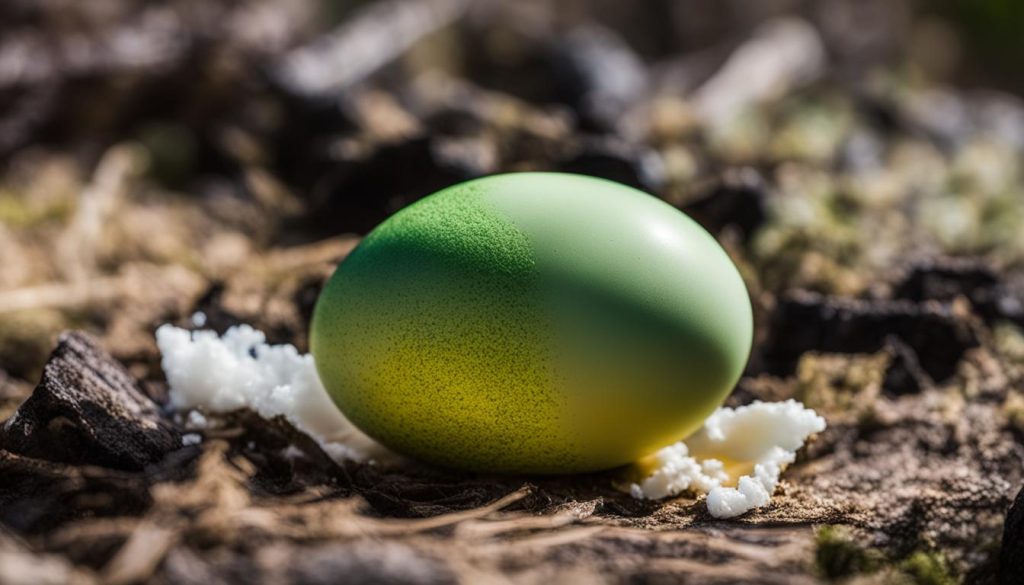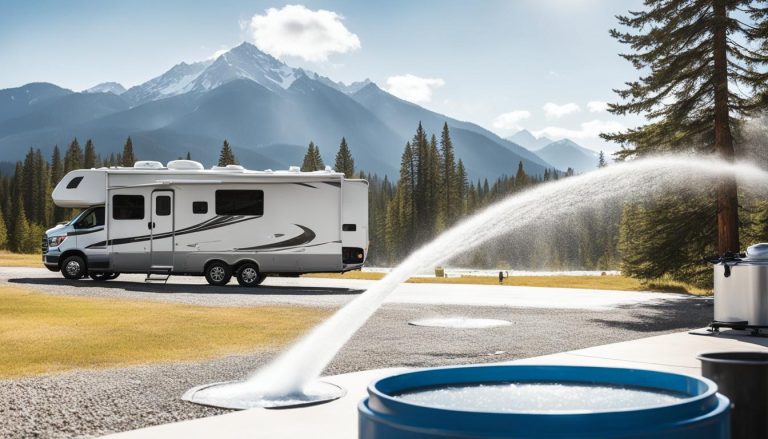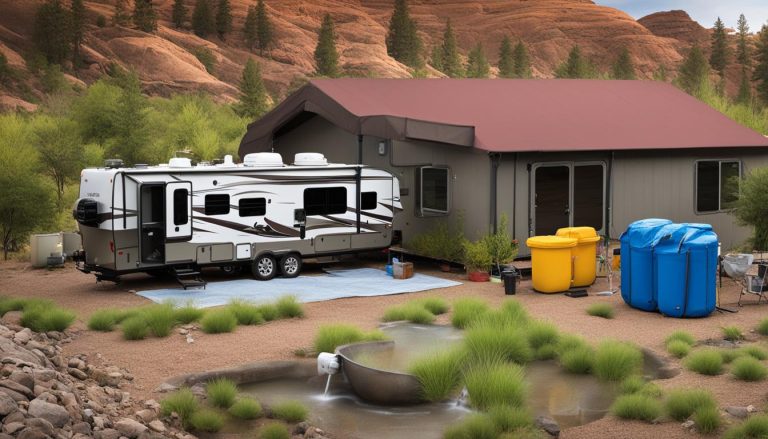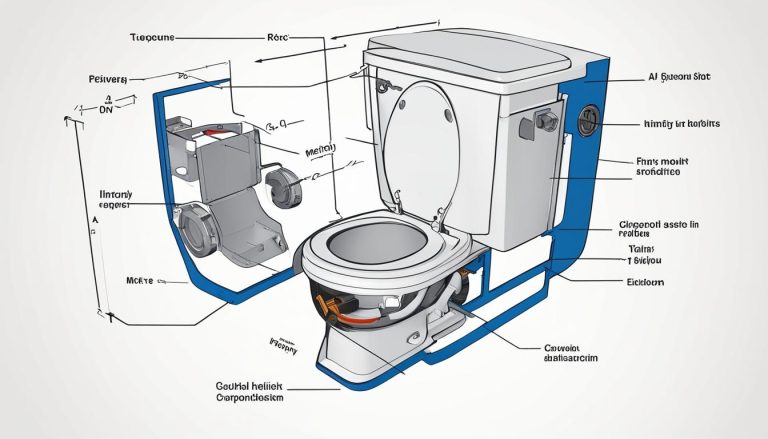RV Odor Issues? Why It Smells Like Rotten Eggs
gorvlifestyle.com and its partners may earn a commission if you purchase a product through one of our links
If you’re experiencing a foul odor in your RV that smells like rotten eggs, you’re not alone. This unpleasant smell can be caused by several factors, but there’s no need to panic. In this article, we’ll explore the reasons behind the rotten egg smell in your RV and provide you with solutions to fix the issue. From bacteria in your water heater to bacteria in water hookups or freshwater tanks, we’ll cover it all. By understanding the causes and implementing the appropriate fixes, you’ll be able to enjoy a fresh and odor-free RV experience.
Key Takeaways:
- The rotten egg smell in your RV can be caused by bacteria in the water heater, water hookups, or freshwater tanks.
- To fix the issue, you may need to flush your water heater, replace the anode rod, sanitize your freshwater system, or switch to using your freshwater tanks.
- By regularly maintaining your RV’s water system, flushing the water heater, and using an aluminum-zinc anode, you can prevent future odor issues.
Bacteria in Your Water Heater
One of the most common causes of a rotten egg smell in an RV is anaerobic bacteria in the water heater. When bacteria and sulfur microbes interact with the magnesium or aluminum anode rod in the water tank, hydrogen sulfide gas is produced, resulting in the foul odor.
To fix this issue, you have a few options. First, you can flush out the water heater tank. This involves draining all the water from the tank and then adding a hydrogen peroxide solution to kill the bacteria. After letting the solution sit for a period of time, you can flush the tank with clean water to remove any remaining residue.
Another solution is to replace the anode rod in your water heater. Anode rods are sacrificial rods that attract corrosive elements in the water to protect the tank. Over time, these rods can become coated with bacteria and sulfur, contributing to the smell. Magnesium anode rods typically last from one to three years, while aluminum anode rods can last from three to five years. By replacing the anode rod, you can eliminate the source of the bacteria and prevent future odor issues.
If you find that the rotten egg smell persists even after flushing and replacing the anode rod, you may want to consider installing an aluminum-zinc rod. This type of rod is more resistant to bacteria and can help prevent the smell for a longer period of time.
Remember, regular maintenance of your water heater is essential to keep it clean and odor-free. Flushing the water heater periodically and inspecting the anode rod for signs of deterioration can help prevent the growth of bacteria and maintain a fresh water supply in your RV.
Bacteria in Water Hookups or Freshwater Tanks
In addition to the water heater, bacteria in water hookups at campgrounds or freshwater tanks in your RV can also cause a rotten egg smell. If you’re connected to water hookups at a campground and notice the odor, notify the campground manager and switch to using your freshwater tanks.
If the issue is with your freshwater tanks, you’ll need to sanitize both the tank and the freshwater plumbing system. This can be done by creating a solution of bleach and water, pouring it into the tanks, and running your pump and all the taps in your RV. Afterward, let the solution sit overnight and flush the system with freshwater the next day to remove the bleach smell.
If you’re unsure about the proper method for sanitizing your freshwater system, refer to your RV’s owner manual or consult an RV service professional for guidance. It’s important to follow the recommended steps to ensure effective sanitation and eliminate any bacteria that may be causing unpleasant odors in your RV’s water supply.
Regular maintenance of your campground water connection and freshwater tanks is crucial in preventing the buildup of bacteria that can lead to foul smells. By taking these necessary steps, you can enjoy a fresh and odor-free camping experience, no matter where your travels take you.
Determining the Source of the Smell
To get to the bottom of the rotten egg smell in your RV, it’s important to identify the source. One way to do this is by running both cold and hot water through your taps and paying attention to any distinct odors. Let’s break it down and troubleshoot:
If the smell is present when running cold water and you’re hooked up to a water hookup:
- Try disconnecting from the water hookup and see if that resolves the issue.
- If the smell persists even after disconnecting from the hookup, the problem is likely with your freshwater tank.
If there is no smell when running cold water, but a smell is present when running hot water:
- The issue is likely with your water heater.
By going through this troubleshooting process, you can pinpoint the exact component of your RV’s water system that requires attention. Now, let’s move on to the next steps in addressing the odor issue.

| Source of Smell | Possible Cause |
|---|---|
| Cold Water | Water hookup |
| Cold Water | Freshwater tank |
| Hot Water | Water heater |
Preventing Future Odors and Summary
Now that you’ve addressed the current issue of a rotten egg smell in your RV, it’s important to take steps to prevent future odors. Regular maintenance is key to keeping your RV’s water system fresh and odor-free.
To prevent odor in your RV, start by flushing the water heater regularly to remove sediment and deposits. This will help eliminate any bacteria growth that can cause unpleasant smells. Additionally, consider using an aluminum-zinc anode in your water heater. This type of anode rod is specifically designed to combat bacteria and reduce odors.
Another maintenance tip is to perform a fresh water flush of your RV’s entire system periodically. This will help remove any buildup or contaminants that can lead to odor issues. Make sure to follow the manufacturer’s instructions on how to properly flush the system and use a suitable cleaning solution if needed.
By implementing these maintenance practices, you can ensure a pleasant and odor-free RV experience on your future travels. Taking proactive steps to maintain your RV’s water system will not only prevent odors but also extend the lifespan of your equipment. So, follow these tips and enjoy an odor-free RV experience wherever your adventures take you. Happy camping!
FAQ
Why does my RV smell like rotten eggs?
The rotten egg smell in your RV can be caused by various factors, including bacteria in the water heater, bacteria in water hookups or freshwater tanks, and issues with the RV’s water system.
How can I address the rotten egg smell in my RV caused by bacteria in the water heater?
To fix this issue, you can flush out the water heater tank with hydrogen peroxide and replace the anode rod. Another option is to install an aluminum-zinc rod for longer-term prevention.
What should I do if I notice a rotten egg smell in my RV when hooked up to water hookups at a campground?
If you’re connected to water hookups at a campground and notice the odor, notify the campground manager and switch to using your freshwater tanks.
How can I eliminate the rotten egg smell in my RV caused by bacteria in the freshwater tanks?
If the issue is with your freshwater tanks, you’ll need to sanitize both the tank and the freshwater plumbing system. This can be done by creating a solution of bleach and water, pouring it into the tanks, and running your pump and all the taps in your RV.
How can I determine the source of the rotten egg smell in my RV’s water system?
To determine the source, you can run both cold and hot water through your taps. If the smell persists when running cold water, the problem is likely with your freshwater tank. If the smell is present when running hot water, the issue is likely with the water heater.
How can I prevent future odors in my RV’s water system?
Regular maintenance is key to preventing future odors. This includes flushing the water heater regularly to remove sediment and deposits, using an aluminum-zinc anode to combat bacteria, and performing a fresh water flush of the system periodically.






